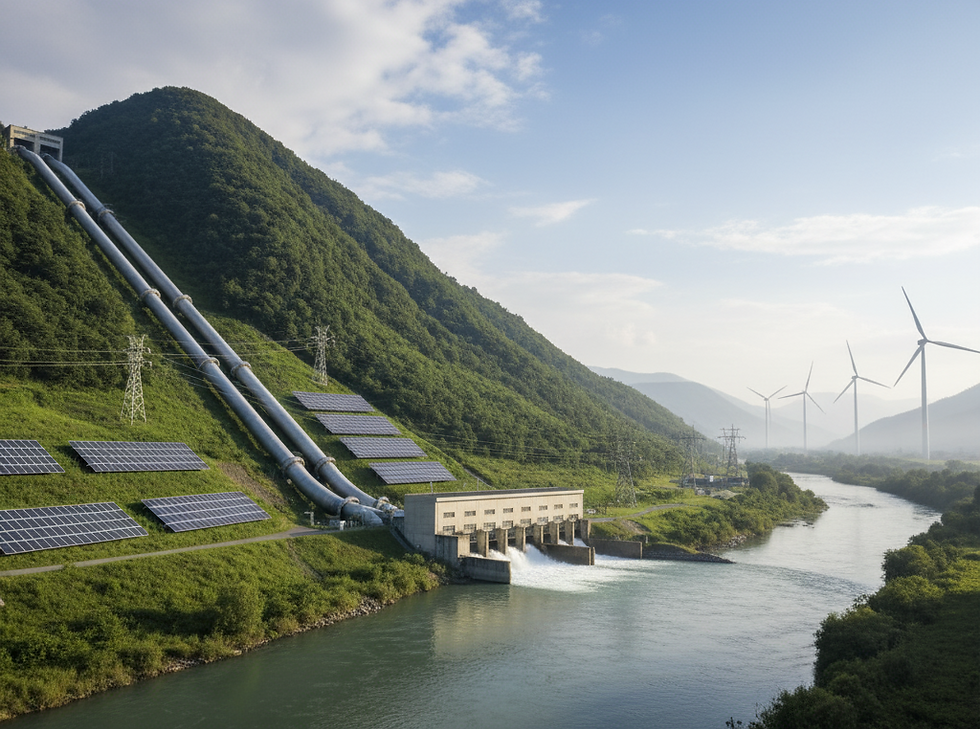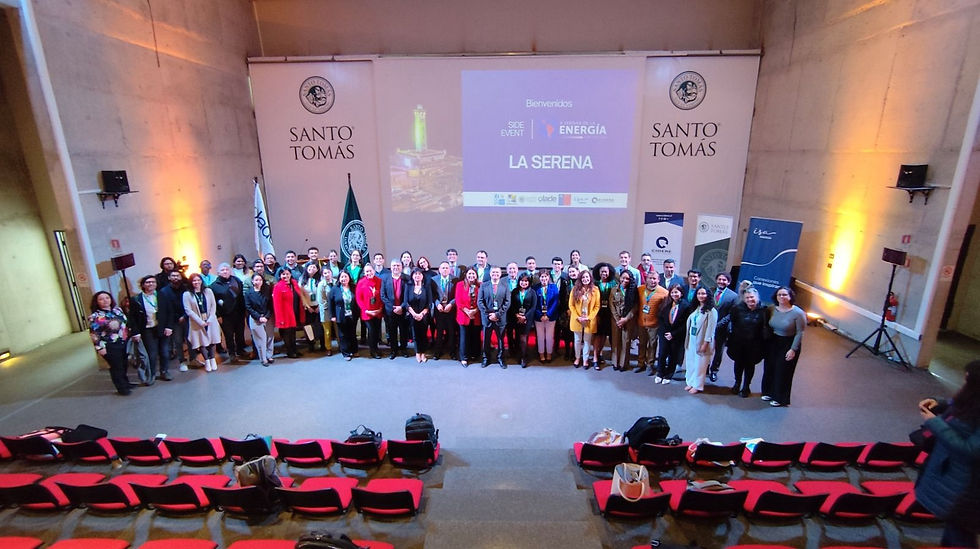Constanza Levicán: The invitation to the presidential tour in India confirms the national technology and climate ecosystem’s relevance
- Comunicaciones Suncast

- Apr 17, 2025
- 3 min read
Constanza Levicán, Suncast’s CEO and Climatech Chile’s president, was one of the national technology ecosystem’s few representatives invited to the recent presidential tour in India, an event that hit a milestone for Chilean companies focused on innovation and sustainability. In this interview, she shares her view on the meaning of the invitation, insights on the visit to Bangalore as the world’s technology hub, and the rise of opportunities for collaboration in matters of climate technology and agriculture.
Constanza, you were one of the few representatives of the technology ecosystem invited to the presidential tour in India. In your point of view as the CEO of Suncast and Climatech Chile’s president, what does this recognition mean to the national climate technology, and what concrete opportunities does this trip provide to Chile on the global stage?
The Official Delegation included seven guests in the area of innovation, and I was one of them as Climatech Chile’s President, an association of scientific and technological companies with solutions against climate change. This allows us to confirm that we have constructed a relevant union and that our opinion has shown interest in important decision-making spaces. The Presidential visit is also in line with Chile’s trade diversification strategy, both in types of products and services to export, as well as target markets.
One of the focuses of the visit was to strengthen cooperation in innovation and technology. What impression did Bangalore give you as the world’s technology hub, and what insights do you take with you to enhance the development of high-value technology in Chile, specifically from Climatech?
The city of Bangalore is a part of the Karnataka Region, which is the “Silicon Valley of India”, the fourth technology hub on a worldwide level. It has 52 universities and 100,000 professionals with doctorates. It has a couple of technology focuses, which have been reinforced through public policy and investment in high-value technological areas, such as biotechnology, chemicals and pharmaceuticals, artificial intelligence and cybersecurity and microelectronics. They have combined this with business development, drastically increasing the export of said technologies, thus diversifying India’s production matrix.
How do you view Chile’s climate technology’s potential to contribute to India’s agriculture? Are there initiatives or allies in Climatech in that area that could impulse their solutions in that market?
44% of India’s workforce is dedicated to agriculture (Global Blank Group), and there is a demand to increase their country’s food security.
Chile has great potential to provide innovative solutions related to agriculture and hydric management. Particularly, at the Climate Innovation Summit this past 11th of April in Santiago de Chile, the following companies presented their solutions in the area:
AgroSpace | Savings in hydric management through actual evaporation using basins, reservoirs and ecosystems. |
Arcom | Design and manufacture of innovative process rooms. |
Instacrops | Optimizing water, energy and productivity using precise real-time farming. |
Kilimo | Transforming water value in food production. |
Neutral Farming | Regenerative agriculture among agriculturists in Latin America. |
Tierra Verde | Development of engineering, hydric solutions and irrigation products for agriculture. |
During the tour, strategic agreements were signed in the areas such as agri-food and energy. From your firsthand experience, how do you view the potential collaboration with India in terms of natural resource management or energy efficiency?
During this tour, two agreements were signed to impel the entrepreneurship and innovation sectors:
Between the Republic of Chile and the State of Karnataka to include our country in the Global Innovation Alliance (GIA). It is an initiative by the State of Karnataka that connects startups, companies, and organizations with Bangalore’s ecosystem and alliances with countries and cities such as Australia, Tokyo, the United Arab Emirates, Singapore, Belgium, Germany, among others, and Chile will be the first country of Latin America.
The largest association of small and medium companies in India is between ProChile and the India Small Medium Enterprise (SME Forum). With this Memorandum of Understanding, joint projects in terms of commerce, innovation, sustainability, creative industries and entrepreneurship will be impulsed. It will allow internationalization by assisting the connection between Chilean and Indian companies.
India is also seeking to position itself as a new manufacturing hub for the technological and pharmaceutical industries. What opportunities do you see for Chilean companies - such as the ones associated with Climatech - to develop production alliances or access scaling processes from this country?
India represents an opportunity for Chilean companies that seek to scale their products on an industrial production level. The Chilean companies that develop hardware and measurement technology IoT, such as the ones we have at Climatech Chile, can benefit from India’s manufacturing abilities. Also, the companies that develop drugs, vaccines and biotechnology solutions can achieve mass production.
The access to a market with 1,400 million people, along with the technological infrastructure and qualified workforce, provides a conducive environment to scaling solutions and producing on a large scale, which would allow exportation not only to India, but also to other Asian countries.

.png)




Comments